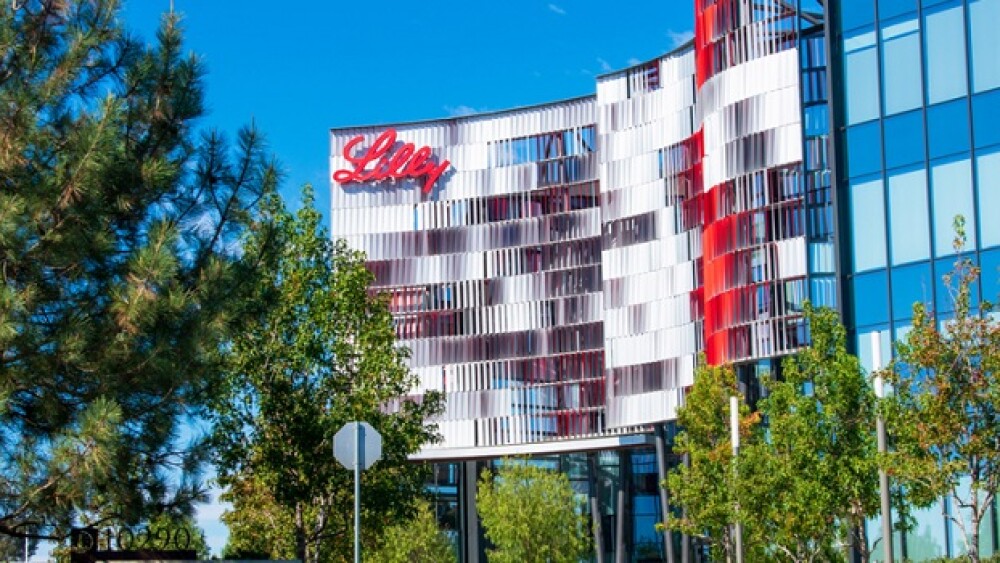The regulator found no issues with mirikizumab’s clinical or safety data.
Pictured: Eli Lilly building / iStock, Michael Vi
Flagging problems in the proposed manufacturing process, the FDA has issued a Complete Response Letter rejecting the Biologics License Application (BLA) for Eli Lilly’s ulcerative colitis (UC) candidate mirikizumab, the company announced Thursday.
The regulator found no issues with mirikizumab’s clinical data and did not raise safety or labeling concerns.
Lilly is working with the FDA to resolve the regulator’s questions about mirikizumab’s manufacturing, Lilly Executive Vice President Patrik Jonsson said in the statement.
Mirikizumab is a humanized monoclonal antibody targeting the p19 subunit of interleukin 23, a pro-inflammatory cytokine known to play a role in several auto-immune conditions such as psoriasis, rheumatoid arthritis and inflammatory bowel diseases, including UC.
Lilly filed the BLA for mirikiziumab in the first quarter of 2022, supporting its submission with data from the Phase III LUCENT clinical trial program, which includes three studies: LUCENT-1, LUCENT-2 and LUCENT-3.
In February 2022, Lilly released full results from the randomized, placebo-controlled and induction LUCENT-1 trial in patients with moderate to severe UC who had previously failed to respond to conventional or biologic intervention. In these patients, mirikizumab led to a 24.2% clinical remission rate at 12 weeks, compared to 13.3% in placebo recipients.
Lilly’s candidate also bested placebo in terms of clinical response, symptomatic remission and bowel urgency.
Three months later, in May 2022, the company released results from LUCENT-2, a maintenance study testing the durability of mirikizumab’s effects in patients who had completed LUCENT-1. Of patients who had responded to the 12-week induction treatment with mirikizumab, nearly half achieved clinical remission at the 1-year follow-up after maintenance treatment, compared with 25.1% in the placebo arm.
As for safety, both LUCENT-1 and LUCENT-2 found lower rates of serious adverse events in the mirikizumab arm relative to placebo. Patients taking the investigational treatment were also less likely to drop out due to toxicities.
LUCENT-3 is an open-label extension study for UC patients who had previously participated in prior mirikizumab trials.
Lilly is confident in mirikizumab’s Phase III performance, Jonsson said Thursday in the company’s press statement accompanying the CRL. The therapeutic antibody was recently approved for moderate to severely active UC in Japan and has won a positive opinion from the European Medicines Agency’s Committee for Medicinal Products for Human Use.
Tristan Manalac is an independent science writer based in metro Manila, Philippines. He can be reached at tristan@tristanmanalac.com or tristan.manalac@biospace.com.






